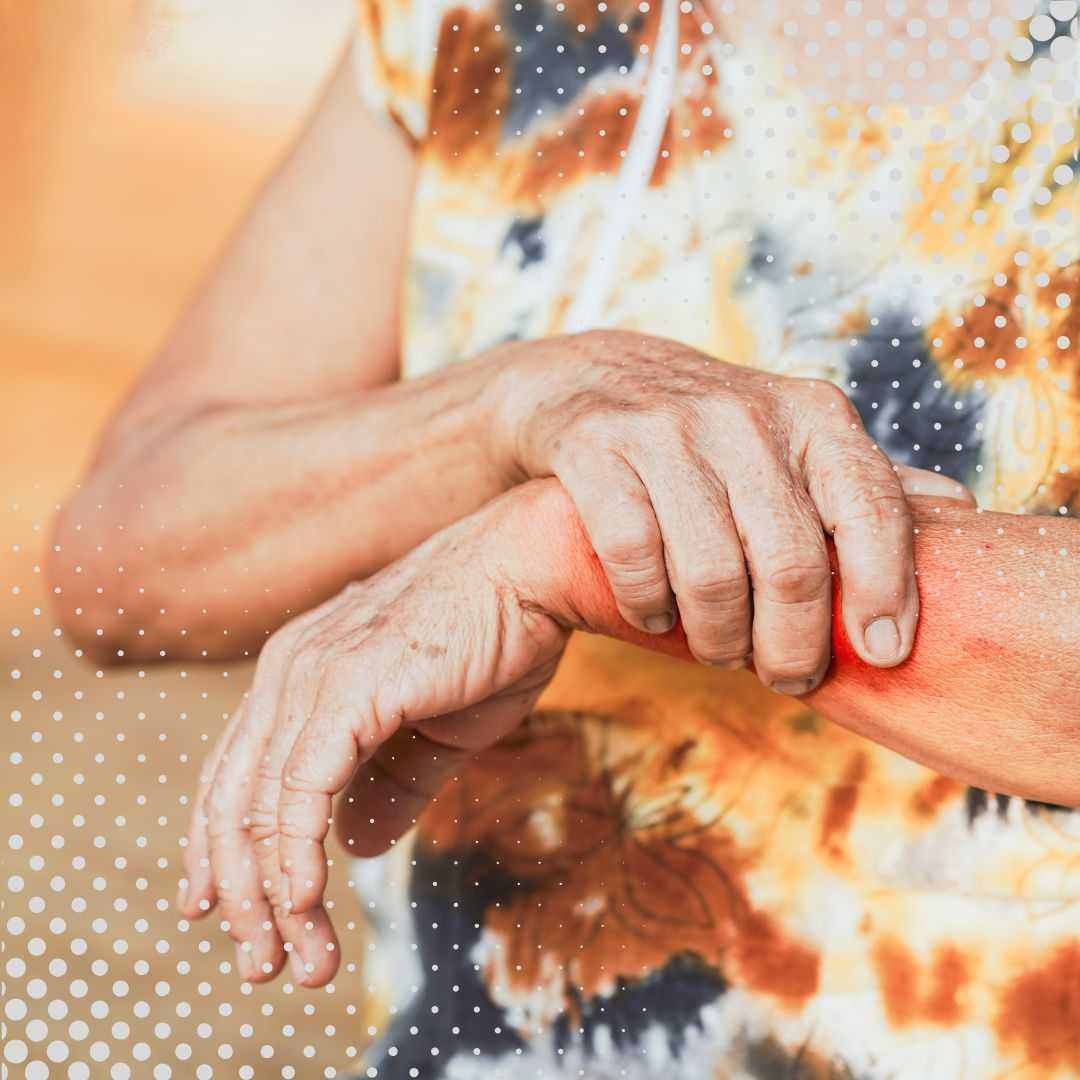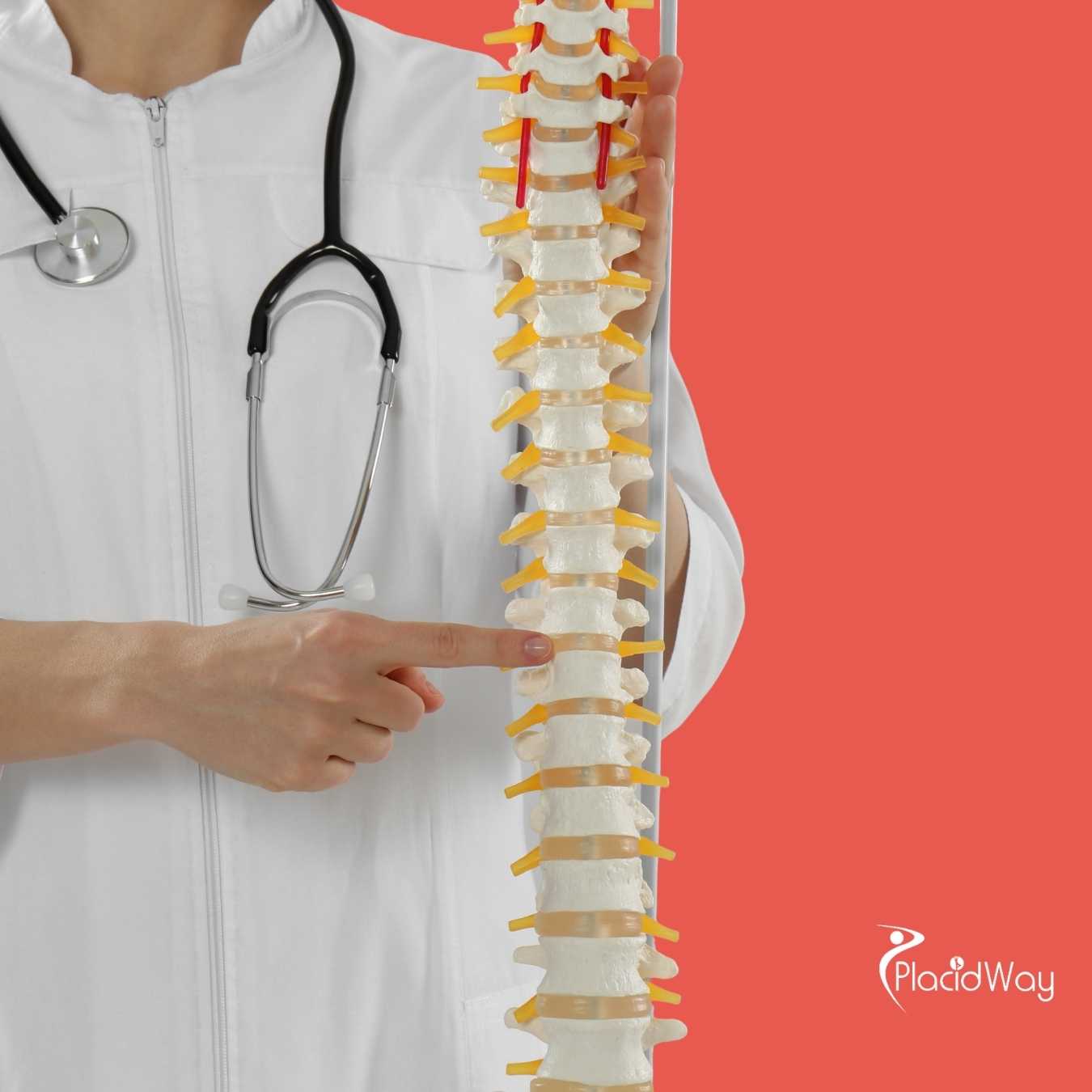
Finding Your Path to Healing: Comprehensive Bulimia Treatment Options
Living with bulimia nervosa can feel isolating and overwhelming, but it's crucial to remember that effective bulimia treatment is available, offering a genuine path to recovery and a healthier life. Bulimia is more than just an issue with food; it's a complex eating disorder characterized by recurring episodes of binge eating—consuming an unusually large amount of food in a short period—followed by compensatory behaviors like self-induced vomiting, excessive exercise, misuse of laxatives or diuretics, or fasting. These behaviors are often driven by an intense fear of gaining weight and a distorted body image.
Many individuals grappling with this condition often search for "how to stop bulimia," "bulimia help," or "eating disorder treatment near me." While local options are valuable, a growing number of patients are discovering the benefits of exploring bulimia treatment abroad. This guide will delve deep into understanding bulimia nervosa, from its symptoms and causes to various treatment approaches, recovery expectations, and why seeking care internationally could be a viable and beneficial option for you or a loved one. We understand the courage it takes to confront this disorder, and our aim is to provide clear, compassionate information to help you make informed decisions on your journey to wellness.
What are the common signs and symptoms of bulimia nervosa?
Recognizing the signs of bulimia nervosa is the first critical step towards seeking help. These symptoms can be both behavioral and physical, and they often become increasingly severe over time. If you’re asking "what are the signs of bulimia?" or "how do I know if I have an eating disorder?", here are key indicators:
- Repeated Episodes of Binge Eating: Consuming an unusually large amount of food in a discreet period (e.g., within two hours), feeling a lack of control over eating during the episode.
- Compensatory Behaviors: Following binge eating with behaviors intended to prevent weight gain, such as:
- Self-induced vomiting (the most common)
- Misuse of laxatives, diuretics, or enemas
- Excessive exercise
- Fasting or severe restriction
- Preoccupation with Body Weight and Shape: Self-evaluation is unduly influenced by body shape and weight, often leading to intense body dissatisfaction and fear of gaining weight.
- Physical Symptoms: These can be subtle at first but may include:
- Swollen salivary glands in the neck and jaw area (sometimes called "chipmunk cheeks")
- Tooth enamel erosion, increased cavities, and gum disease due to stomach acid exposure
- Sore throat and hoarseness
- Electrolyte imbalances (can lead to heart problems)
- Dehydration
- Intestinal distress and constipation from laxative abuse
- Calluses or scars on the knuckles (Russell's sign) from inducing vomiting
- Irregular menstruation in females
- Behavioral and Emotional Signs:
- Secretive eating patterns, hiding food, or eating alone
- Frequent trips to the bathroom after meals
- Social withdrawal and isolation
- Mood swings, irritability, or depression
- Low self-esteem and feelings of shame or guilt
It's important to note that individuals with bulimia nervosa are often at a normal weight or even slightly overweight, making the condition less outwardly obvious than other eating disorders like anorexia.
What causes bulimia nervosa and what are its primary risk factors?
The question "what causes bulimia?" is frequently asked, and the answer is rarely simple. Bulimia nervosa typically arises from a complex interplay of genetic, psychological, and social factors. It's not a choice, but a serious mental health condition.
Key Causes and Risk Factors:
- Genetic Predisposition: Family history of eating disorders or other mental health conditions like depression or anxiety may increase susceptibility.
- Psychological Factors:
- Low Self-Esteem: A pervasive feeling of worthlessness or inadequacy.
- Negative Body Image: Dissatisfaction with one's appearance, often fueled by societal beauty standards.
- Anxiety and Depression: These co-occurring conditions are very common, with food and compensatory behaviors sometimes used as coping mechanisms.
- Perfectionism: An intense need to be flawless, often leading to harsh self-criticism.
- Impulsivity: A tendency to act on sudden urges, which can contribute to binge eating.
- Trauma: A history of trauma, abuse, or neglect can significantly increase the risk.
- Social and Cultural Pressures:
- Societal Emphasis on Thinness: Constant exposure to idealized body types in media can lead to body dissatisfaction.
- Diet Culture: Pressure to diet, restrict food, and achieve a certain weight can trigger unhealthy eating patterns. Many "how to lose weight fast" searches can lead to dangerous behaviors.
- Peer Pressure: Influence from friends or social groups regarding appearance and weight.
- Environmental Factors:
- Stressful Life Transitions: Major life changes can trigger the onset of bulimia.
- Participation in Sports/Activities: Certain sports or professions (e.g., ballet, modeling) that emphasize leanness can be risk factors.
Understanding these underlying factors is crucial for effective treatment, as therapy often targets these root causes alongside the eating behaviors.
What types of effective treatments are available for bulimia, and who is eligible?
When searching for "how to treat bulimia" or "bulimia recovery programs," you'll find a range of evidence-based approaches designed to address both the physical and psychological aspects of the disorder. The goal is to break the binge-purge cycle, restore healthy eating patterns, and address the underlying emotional and psychological issues.
Main Treatment Modalities:
- Psychotherapy: This is the cornerstone of bulimia treatment.
- Cognitive Behavioral Therapy (CBT): Widely considered the most effective therapy for bulimia. It helps individuals identify and change dysfunctional thoughts and behaviors related to food, weight, and body image.
- Dialectical Behavior Therapy (DBT): Focuses on emotional regulation, distress tolerance, interpersonal effectiveness, and mindfulness, particularly helpful for those with co-occurring mood disorders.
- Family-Based Treatment (FBT): Often used for adolescents, involving parents in helping their child restore healthy eating and manage symptoms.
- Interpersonal Psychotherapy (IPT): Addresses interpersonal problems that may contribute to bulimic symptoms.
- Nutritional Counseling: Registered dietitians help individuals develop healthy eating plans, understand balanced nutrition, challenge food myths, and restore a normalized relationship with food.
- Medication: Antidepressants, particularly selective serotonin reuptake inhibitors (SSRIs) like fluoxetine (Prozac), are often used in conjunction with psychotherapy to help reduce bulimic symptoms and treat co-occurring depression or anxiety.
- Medical Monitoring: Due to potential physical complications (like electrolyte imbalances or cardiac issues), regular medical check-ups are essential throughout treatment.
Who is Eligible for Treatment?
Anyone experiencing symptoms of bulimia nervosa is eligible for an assessment and potential treatment. Eligibility for specific treatment levels (e.g., outpatient, intensive outpatient, residential, or inpatient) is determined by a healthcare professional based on:
- Severity and frequency of bulimic behaviors.
- Medical stability (e.g., presence of electrolyte abnormalities or cardiac issues).
- Co-occurring mental health conditions (e.g., severe depression, suicidal ideation).
- Level of support available at home.
- Ability to function in daily life.
For many, outpatient care is sufficient, but those with severe symptoms or medical complications may require a higher level of care, such as residential treatment, which provides round-the-clock support.
What is the typical recovery time for bulimia, and what are the associated risks or side effects of treatment?
The path to recovery from bulimia nervosa is not a straight line, but a process that requires patience, commitment, and ongoing support. When patients ask "how long does bulimia recovery take?" or "can bulimia be cured?", it's important to manage expectations.
Typical Recovery Timeline and Expectations:
- Duration: Recovery is highly individualized. It often involves several months to a year or more of consistent therapy and support. Significant progress can be seen within weeks or months, but fully establishing healthy habits and challenging ingrained thought patterns takes time.
- Phases of Recovery:
- Stabilization: Addressing immediate medical concerns, stopping binge-purge cycles, and establishing regular eating patterns.
- Therapeutic Work: Delving into the psychological roots of the disorder, developing coping mechanisms, and improving self-esteem.
- Maintenance: Learning to cope with relapses, building a strong support system, and maintaining long-term recovery strategies.
- Relapses: These are a common part of the recovery process and do not mean failure. They are learning opportunities to identify triggers and strengthen coping skills.
- Long-Term Goal: The aim is not just to stop behaviors, but to achieve full emotional and psychological healing, leading to a healthy relationship with food and one's body, and an improved quality of life.
Risks and Side Effects Associated with Treatment:
While the goal of treatment is to alleviate suffering and improve health, the process itself can come with some challenges:
- Emotional Challenges: Confronting underlying emotions, traumas, and body image issues can be intensely difficult and may lead to increased anxiety, sadness, or anger in the short term.
- Physical Discomfort: As eating patterns normalize, some individuals may experience temporary weight fluctuations, digestive discomfort, or fluid retention.
- Medication Side Effects: If medication (like SSRIs) is prescribed, there can be side effects such as nausea, insomnia, or changes in appetite, though these are usually mild and temporary.
- Withdrawal: Stopping laxative abuse can initially lead to temporary constipation and bloating, which needs to be managed medically.
- Intensive Treatment Stress: Residential or inpatient programs, while effective, can be demanding and require significant adjustment to a structured environment.
It's crucial that treatment is delivered by experienced professionals who can anticipate and manage these challenges, ensuring the patient's safety and well-being throughout the recovery journey.
How much does bulimia treatment cost worldwide, and what influences pricing?
Understanding the financial aspect of bulimia treatment is a significant concern for many patients and families searching for "how much does bulimia treatment cost?" or "affordable eating disorder treatment." The cost can vary dramatically based on several factors, including the type of program, its duration, location, and the specific services included.
Factors Influencing Bulimia Treatment Costs:
- Level of Care:
- Outpatient Therapy: Least expensive, involving weekly or bi-weekly sessions with a therapist, dietitian, and doctor.
- Intensive Outpatient Programs (IOP): More structured than outpatient, with several hours of therapy multiple days a week.
- Partial Hospitalization Programs (PHP): Day treatment programs, often 5-7 days a week for several hours, allowing patients to return home at night.
- Residential Treatment: 24/7 care in a non-hospital setting, offering a highly structured environment away from daily triggers.
- Inpatient Hospitalization: Highest level of care, for acute medical or psychiatric instability, usually in a hospital setting.
- Duration: Longer programs naturally incur higher costs. Residential treatment can last weeks to months.
- Location: Treatment in countries with a high cost of living (e.g., USA, UK, Canada, Australia) is typically much more expensive than in countries where healthcare and living expenses are lower.
- Inclusions: Some programs are all-inclusive (therapy, medical, nutritional, accommodation, activities), while others charge separately for various components.
- Insurance Coverage: While some health insurance plans cover eating disorder treatment, coverage varies widely and often has limitations.
Worldwide Cost Comparison (Estimates in USD):
These figures are rough estimates and can fluctuate greatly. They highlight why "bulimia treatment abroad" is often searched for affordable alternatives.
| Country/Region | Type of Treatment | Estimated Cost Range (per month) | Notes |
|---|---|---|---|
| USA / Canada | Residential / Inpatient | $30,000 - $60,000+ | High cost of living, limited insurance coverage for full cost. |
| Western Europe (e.g., UK) | Residential / Inpatient | $20,000 - $45,000+ | Can be publicly funded but often with long waiting lists. |
| Mexico | Residential | $8,000 - $18,000 | Known for integrated care, proximity for North Americans. |
| Thailand | Residential | $7,000 - $15,000 | Holistic approach, serene environment, often includes wellness. |
| Turkey | Residential | $6,000 - $12,000 | Emerging medical tourism hub, modern facilities. |
| South Africa | Residential | $5,000 - $10,000 | Quality care in a beautiful setting. |
When considering "affordable bulimia treatment," exploring options in medical tourism destinations can often provide access to high-quality care at a fraction of the cost found in Western countries, making recovery more accessible.
Why should I consider seeking bulimia treatment abroad?
For many individuals struggling with bulimia nervosa, the idea of "bulimia treatment overseas" or "eating disorder medical tourism" is gaining traction. This isn't just about cost savings; it offers a unique set of advantages:
- Cost-Effectiveness: As seen in the cost comparison, treatment abroad can be substantially more affordable, especially for comprehensive residential programs that may be prohibitively expensive domestically. This allows for longer, more thorough treatment often needed for lasting recovery.
- Access to Specialized Programs: Some international clinics offer unique, holistic, or integrated treatment approaches that might not be readily available in one's home country. They may combine traditional therapy with mindfulness, yoga, art therapy, or adventure therapy.
- Shorter Waiting Lists: In many countries, specialized eating disorder clinics have long waiting lists. Traveling abroad can mean quicker access to immediate, essential care.
- Privacy and Anonymity: For those who wish to keep their treatment private, traveling to another country provides a degree of anonymity and distance from social circles or work environments.
- Change of Environment: A new environment can be highly therapeutic. Being away from daily triggers, routines, and stressors associated with one's home life can provide a fresh perspective and a dedicated space for healing. It's like pressing a reset button for recovery.
- Intensive and Focused Care: Many international programs are designed for intensive, immersive treatment, allowing patients to fully focus on their recovery without external distractions.
Which countries offer the best value and quality for bulimia treatment internationally?
When searching for "best country for bulimia treatment" or "affordable eating disorder clinics abroad," several destinations consistently emerge due to their blend of quality care, experienced professionals, and competitive pricing. These countries have invested significantly in medical tourism infrastructure and have reputable clinics specializing in mental health and eating disorders.
- Mexico: Easily accessible for North American patients, Mexico offers a range of high-quality, often luxurious, residential treatment centers specializing in eating disorders. Many clinics employ U.S.-trained professionals and provide a comprehensive, integrated approach to care at a fraction of the cost.
- Thailand: Known for its serene and supportive environments, Thai clinics often combine Western medical and psychological treatments with holistic therapies like mindfulness, yoga, and meditation. The focus on wellness and the peaceful surroundings can be highly conducive to recovery.
- Turkey: An emerging hub for medical tourism, Turkey boasts modern hospitals and private clinics with skilled medical professionals. Its strategic location bridges Europe and Asia, offering advanced treatment options at very competitive prices, often including luxury amenities.
- South Africa: Offering excellent standards of care, often influenced by British medical traditions, South Africa provides quality eating disorder treatment in beautiful, calming settings. The lower cost of living translates to more affordable treatment programs.
- Other European Options (e.g., Eastern Europe): Some countries in Eastern Europe are also developing their medical tourism offerings, providing access to highly trained professionals and effective therapies at a lower cost than their Western counterparts.
When evaluating "international eating disorder treatment centers," always look for transparency in pricing, accreditation, and a clear understanding of the treatment philosophy.
What should I expect when planning to travel internationally for bulimia treatment?
Deciding to seek "bulimia help overseas" involves more than just selecting a clinic; it requires careful planning and preparation to ensure a smooth and successful journey to recovery. Here’s what to expect:
- Thorough Research: Dedicate time to researching potential clinics. Look at their treatment philosophies, staff qualifications, accreditations, facilities, and patient testimonials. Services like PlacidWay can help streamline this process.
- Pre-Treatment Consultations: Most reputable international clinics will offer virtual consultations to assess your needs, discuss the treatment plan, and ensure you're a good fit for their program. This is your chance to ask all questions.
- Travel Logistics:
- Passport and Visa: Ensure your passport is valid and check if the destination country requires a visa for medical treatment.
- Flights and Accommodation: Book flights well in advance. Some clinics include airport transfers and accommodation in their package; others may require you to arrange this.
- Travel Insurance: Consider comprehensive travel insurance that covers medical emergencies and trip cancellations.
- Medical Records and Prescription Transfer: Gather all relevant medical history, diagnoses, and current prescriptions to share with your new treatment team. Understand how your home prescriptions will be managed abroad.
- Cultural Considerations: Be open to cultural differences. Research local customs and be prepared for a different environment, which can also be part of the healing experience.
- Communication: Inquire about language support. Many international clinics catering to medical tourists have multilingual staff or translators.
- Support System: Inform trusted family or friends about your plans. While treatment abroad offers privacy, having a support network aware of your journey can be beneficial.
- Financial Planning: Beyond treatment costs, budget for flights, accommodation (if not included), local transport, personal expenses, and any follow-up care.
A well-prepared patient is better positioned to fully engage with and benefit from the treatment program.
How can I ensure safety and high-quality care when choosing a bulimia treatment center abroad?
Ensuring the quality and safety of "bulimia nervosa treatment abroad" is paramount. It’s natural to feel apprehensive, but with diligent research, you can find world-class care. Here’s how to navigate this crucial aspect:
- Accreditation and Certification:
- Look for international accreditations like Joint Commission International (JCI), Commission on Accreditation of Rehabilitation Facilities (CARF), or local equivalents that signify adherence to rigorous quality and safety standards.
- Verify that medical staff (psychiatrists, therapists, dietitians) are licensed and have specialized training in eating disorder treatment.
- Treatment Philosophy and Staff Expertise:
- Inquire about the clinic's specific approach to bulimia treatment (e.g., CBT-E, DBT-informed). Does it align with evidence-based practices?
- Ask about the staff-to-patient ratio, ensuring adequate individual attention and support.
- Confirm the presence of a multidisciplinary team, including medical doctors, psychiatrists, psychologists, and nutritionists.
- Transparency in Treatment Plans and Costs:
- A reputable clinic will provide a detailed breakdown of the treatment plan, including daily schedules, types of therapy, and expected outcomes.
- Ensure there are no hidden costs. A clear, all-inclusive pricing structure is a good sign.
- Medical Monitoring and Emergency Protocols:
- Confirm that medical monitoring is an integral part of the program, especially given the physical risks associated with bulimia.
- Understand their emergency procedures and how medical crises are handled.
- Aftercare and Relapse Prevention:
- A critical component of successful recovery is a robust aftercare plan. Inquire how the clinic supports patients after they leave, including follow-up appointments, remote therapy options, or connections to local support groups.
- Patient Testimonials and Reviews:
- While not the sole determinant, positive and credible patient testimonials and success stories can offer valuable insights into the clinic's effectiveness and patient experience.
- Utilize Medical Tourism Facilitators: Companies like PlacidWay specialize in connecting patients with accredited international providers. They can help vet clinics, arrange logistics, and provide guidance throughout the process, adding an extra layer of security.
Can I find success stories and reliable testimonials for bulimia treatment abroad?
Hearing from others who have successfully navigated "bulimia recovery abroad" can be incredibly empowering and reassuring. Personal stories offer a glimpse into the treatment experience, the challenges faced, and ultimately, the triumph of healing. You absolutely can find success stories and reliable testimonials for bulimia treatment overseas.
Where to Find Them:
- Clinic Websites: Most reputable international treatment centers proudly display testimonials on their official websites. These often include written accounts, and sometimes even video interviews from former patients sharing their journey.
- Medical Tourism Platforms: Companies like PlacidWay often feature patient reviews, ratings, and detailed success stories of individuals who have sought various medical procedures, including eating disorder treatment, through their services. They act as a centralized hub for this information.
- Online Forums and Support Groups: Eating disorder recovery forums and online communities (e.g., Reddit, specialized health forums) can be excellent places to find candid discussions and personal accounts from individuals who have undergone international treatment. Be sure to approach these with a discerning eye, as not all information may be professionally vetted.
- Third-Party Review Sites: Independent review platforms (though less common for highly specialized medical treatment) might also host patient experiences.
- Direct Communication (with consent): In some cases, if a clinic has a strong alumni network, they might be able to connect prospective patients with former clients (with mutual consent and strict confidentiality) to share experiences.
What to Look For in Testimonials:
- Authenticity: Look for detailed accounts that describe specific aspects of the treatment, rather than generic praise. Video testimonials can often feel more genuine.
- Relatability: Find stories that resonate with your own struggles and hopes for recovery.
- Long-Term Recovery: While not always available, testimonials that speak to sustained recovery over time are particularly valuable, demonstrating the lasting impact of the treatment.
- Focus on Holistic Care: Many positive testimonials highlight the comprehensive nature of international programs, covering psychological, nutritional, and emotional well-being.
Reading these stories can provide not only hope but also practical insights into what to expect and how to prepare for your own journey towards healing from bulimia nervosa abroad.
Take the Next Step with PlacidWay
Ready to explore treatment options abroad? Discover top clinics, compare prices, and get a free quote tailored to your needs with PlacidWay.










Share this listing